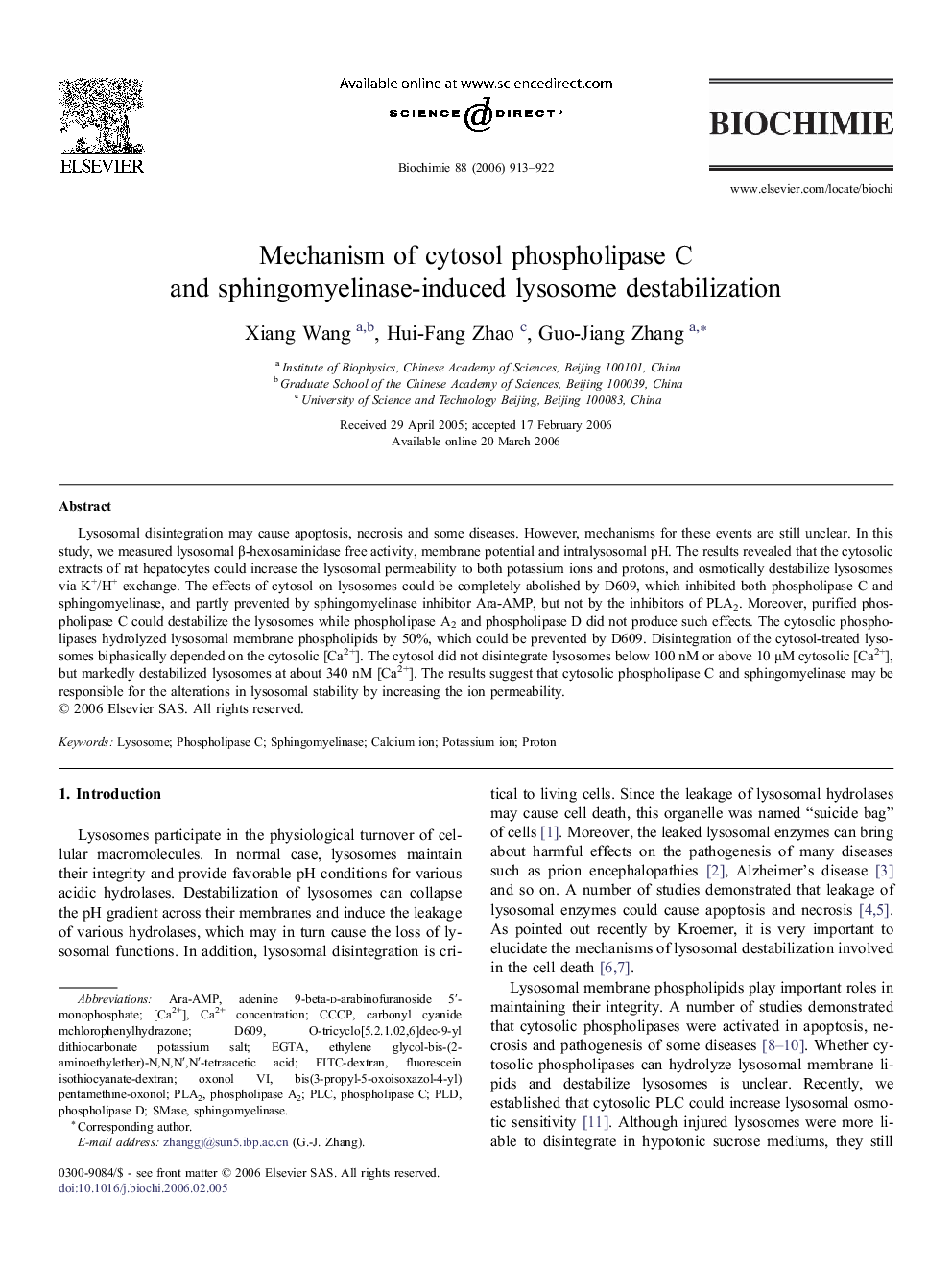| Article ID | Journal | Published Year | Pages | File Type |
|---|---|---|---|---|
| 1953202 | Biochimie | 2006 | 10 Pages |
Abstract
Lysosomal disintegration may cause apoptosis, necrosis and some diseases. However, mechanisms for these events are still unclear. In this study, we measured lysosomal β-hexosaminidase free activity, membrane potential and intralysosomal pH. The results revealed that the cytosolic extracts of rat hepatocytes could increase the lysosomal permeability to both potassium ions and protons, and osmotically destabilize lysosomes via K+/H+ exchange. The effects of cytosol on lysosomes could be completely abolished by D609, which inhibited both phospholipase C and sphingomyelinase, and partly prevented by sphingomyelinase inhibitor Ara-AMP, but not by the inhibitors of PLA2. Moreover, purified phospholipase C could destabilize the lysosomes while phospholipase A2 and phospholipase D did not produce such effects. The cytosolic phospholipases hydrolyzed lysosomal membrane phospholipids by 50%, which could be prevented by D609. Disintegration of the cytosol-treated lysosomes biphasically depended on the cytosolic [Ca2+]. The cytosol did not disintegrate lysosomes below 100 nM or above 10 μM cytosolic [Ca2+], but markedly destabilized lysosomes at about 340 nM [Ca2+]. The results suggest that cytosolic phospholipase C and sphingomyelinase may be responsible for the alterations in lysosomal stability by increasing the ion permeability.
Keywords
Related Topics
Life Sciences
Biochemistry, Genetics and Molecular Biology
Biochemistry
Authors
Xiang Wang, Hui-Fang Zhao, Guo-Jiang Zhang,
